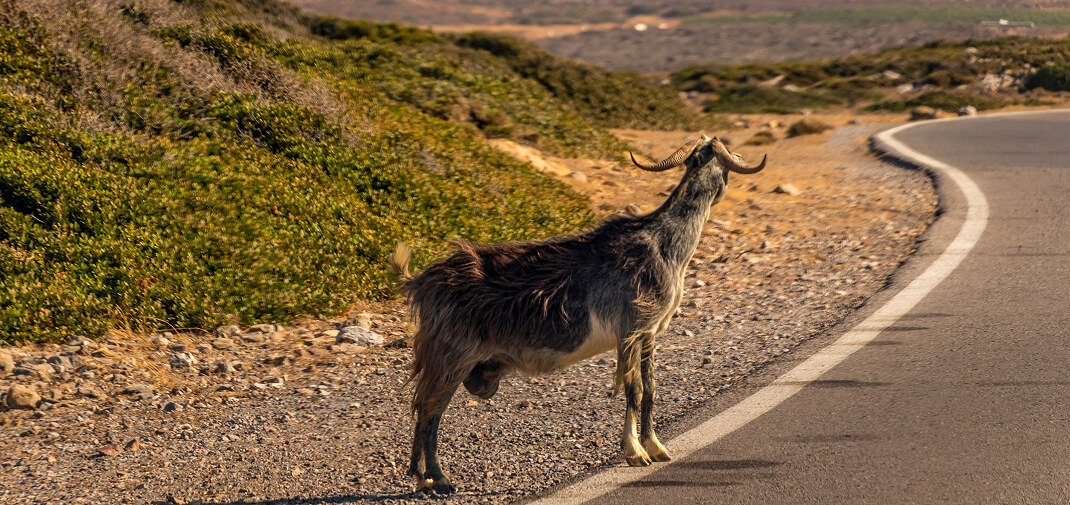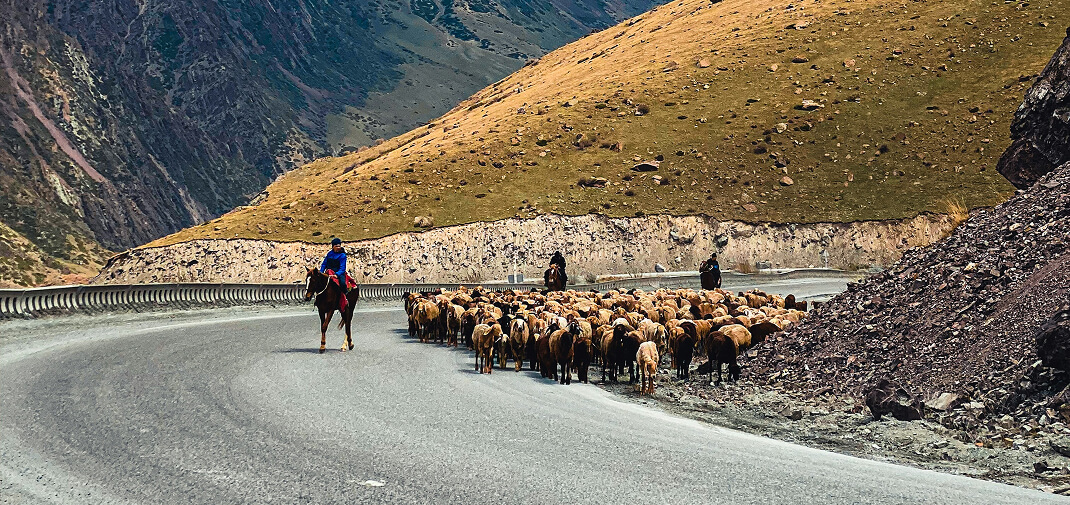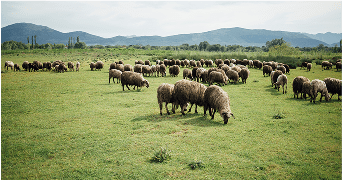
A loose cow or horse can turn a two-lane road into a crash site. When that happens, people first want to know whether the animal should have been there at all.
Do farmers have to fence livestock? In California, they often do. The law places clear duties on livestock owners, depending on where the road is and how the land is fenced. Other states follow different rules, and livestock can legally roam near traffic in some areas.
To know if the farmer can be liable in your accident, start with where the crash occurred and whether the law required the animal to be kept off that road.
What Is an “Open Range” Area and Why Does It Matter?
If you were in a crash with a cow or another farm animal, one of the most important factors is where it happened. The location isn’t just a minor detail—it can completely change who’s responsible.
In some parts of California, livestock owners must keep their animals fenced in and off the road. If your crash happened in one of these areas, the animal’s owner could be legally liable for the crash if they failed to take reasonable preventative steps to keep their livestock enclosed.
However, in other areas designated as “open range,” livestock are allowed to roam freely near roads. When a crash happens in an open range area, the rules are very different. In those cases, the driver may not be able to hold the livestock owner responsible, even if the animal was in the roadway. That’s because, under California’s open range laws, it’s generally the driver’s duty to be cautious in areas where free-roaming animals are legally permitted. Determining whether you were in a fenced or open range area is key to understanding your rights and whether you may be entitled to compensation.
How Do You Know If You Were in an Open Range Area?
County rules usually determine whether your crash took place in an open range or a fenced-in area. California state law allows counties to decide whether livestock can roam freely or must be fenced in. That means one road might require fencing, while another just a few miles away might not.
Some clues you were in an open range area include:
- You saw signs saying “open range” or “watch for livestock”;
- The area was rural, with large open fields and few fences; and
- Locals mentioned that animals frequently cross the roads in that area.
If none of those factors were obvious at the time, an experienced attorney can help you get answers. A lawyer can check county ordinances, talk to local authorities, and review past complaints or incidents involving the same stretch of road.
When Is the Livestock Owner Still Responsible?
Be aware: Animal owners aren’t automatically off the hook in open-range areas. Here are some scenarios where a livestock owner might still be responsible for an accident:
- Negligence. In many open-range zones, owners are expected to act reasonably. It could be considered negligence if they left a gate open, knew the fence was broken and didn’t fix it, or let animals wander near a high-traffic road repeatedly.
- Violation of local ordinances. Some counties have “no-fence” rules on certain roads, meaning livestock isn’t allowed to wander near traffic in those spots, regardless of whether the area is open range. If your crash occurred on one of these restricted roads, the owner may have broken the law by letting their animals near it.
- Escaped livestock in fenced-in areas. If your accident was inside a fenced-in area (common in most parts of California) and the livestock got loose, the owner may be liable. That means they’re responsible simply because their animal was on the road, whether they were negligent or not.
- Previous complaints or incidents. If the owner was warned before, maybe by neighbors, drivers, or law enforcement, and still hasn’t fixed the problem, that can strengthen your case. A history of loose livestock can point to carelessness or willful disregard.
Determining liability often comes down to one key question: Do farmers have to fence livestock under the laws in your area? Knowing the answer is essential to evaluating whether the owner can be held responsible.
What Should You Do After Hitting Livestock on the Road?
Accidents involving animals can be just as serious as crashes with other vehicles. If you’ve been in a collision with livestock, here’s what to do next to help protect your health, rights, and potential legal claim.
Call 911
Always report the accident to the authorities. The police or highway patrol can create an official report, which can be important for insurance and legal claims later. If anyone is injured, emergency services can also get help quickly on the way.
Get Medical Attention
Although you may feel fine right after the crash, it’s best to be examined by a doctor. Adrenaline can mask pain, and some injuries (like concussions or whiplash) don’t show up right away. A medical record also helps connect your injuries to the accident.
Take Photos and Video
If it’s safe, take pictures of the accident scene, your vehicle, the road conditions, and, if possible, the animal. Try to capture:
- Any visible fencing (or lack of it),
- Warning signs (or their absence),
- Skid marks or debris, and
- Where the animal entered or exited the road.
These details can help show whether the livestock should have been there or not.
Talk to Witnesses
Ask for the names and contact information of other drivers or bystanders who witnessed the accident. Their statements can support your version of events, especially if they saw where the animal came from.
Don’t Admit Fault
If you’re feeling shaken or unsure about what took place, avoid saying anything like “I should have seen it” or “It was my fault.” Insurance companies or a farmer’s attorneys can use comments like that against you later, regardless of the circumstances.
Because crashes involving livestock can get complicated, it’s crucial to speak with a local livestock car accident attorney who can guide you through your legal options.
Speak with a Central Valley Lawyer Who Understands Livestock Accidents
Liability in livestock crashes depends on local law, fencing rules, and where the collision occurred. That’s not always easy to figure out. If you were injured in a crash involving livestock in California, Silva Injury Law can help you understand your rights. Our team has years of experience fighting for injured drivers across the Central Valley. Call or fill out our online contact form to schedule a free consultation with one of our livestock accident attorneys today.

